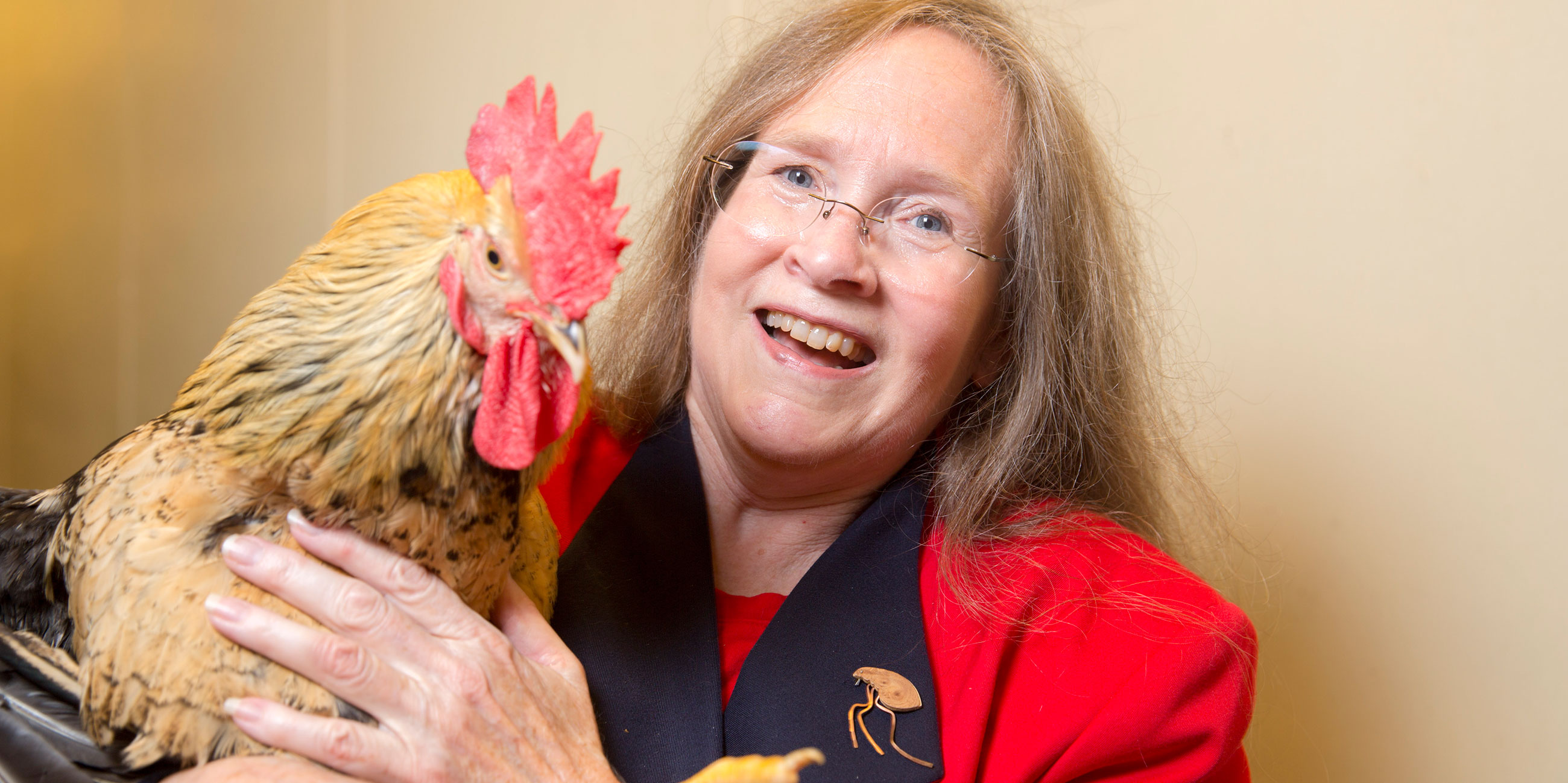Nancy Hinkle, professor of veterinary entomology in the College of Agricultural and Environmental Sciences, conducts research and outreach at the intersection of human health and veterinary medicine.
Where did you earn degrees and what are your current responsibilities at UGA?
On any given football weekend my team cannot lose. After receiving my bachelor’s and master’s from Auburn University, I went to the University of Florida for my Ph.D., and now I’m a faculty member at the University of Georgia—so at least one of my teams is bound to win! Here at UGA I am a medical-veterinary entomologist, studying arthropods (insects and their multi-legged relatives) that affect human and animal health. My program covers things like fleas, ticks, lice, mites, flies and other creatures that suck blood and transmit disease agents.
When did you come to UGA and what brought you here?
After getting three degrees in the Southeastern Conference, my first faculty position was at the University of California, Riverside — the largest entomology department in the country. After nine years there, UGA’s veterinary entomology position opened and I applied and was hired for this position in Athens. My entire career has been devoted to developing strategies to control pests and enhance human and animal health.
What are your favorite courses and why?
Most of the students in my medical entomology class are pre-med majors, and it is exciting to see them developing the foundational knowledge they will use for the rest of their medical careers. Especially as medicine becomes more internationalized, our students need to be trained to recognize diseases not yet found in North America, because there is a good chance that physicians in the coming decades will see conditions that are currently considered foreign.
What interests you about your field?
Three-quarters of all living things are insects, and insect-transmitted pathogens (such as malaria, yellow fever, dengue, typhus, plague) still kill millions of people every year. It is fascinating how these disease agents have adapted to be carried by insects; my graduate students know that our research has significance in human and veterinary medicine.
What are some highlights of your career at UGA?
Definitely my graduate students. Seeing a young scientist develop their ability “to inquire into the nature of things” is the purpose of UGA as a research institution, and nothing is more gratifying for a professor.
How does your research or scholarship inspire your teaching, and vice versa?
Because we work on very practical and immediate problems, everything we discover has direct application to my teaching. Much of my instructional mission involves off-campus Extension outreach, so interacting with end-users provides real-time feedback on needs and concerns, which helps orient our research priorities. For instance, one of my graduate students first demonstrated that a beetle found in chicken houses serves as a reservoir and vector for salmonella; efforts to eliminate salmonella, therefore, are intimately tied with pest management.
What do you hope students gain from their classroom experience with you?
In my classrooms I get to interact with some of the brightest minds in the country; I want these young people to find their own devotion, the interest to which they can commit their careers. As a Christian, I believe that we were each created for a specific purpose and that our fulfilment and personal satisfaction come from pursuing that unique life.
Describe your ideal student.
Just by being accepted to the University of Georgia, a student is confirmed as intellectually capable of succeeding. However, innate intelligence is not enough – it must be combined with self-discipline. Our most successful students are those who have a strong work ethic, enabling them to optimally use their brainpower.
Favorite place to be/thing to do on campus is…
Because the veterinary entomology program is field-based, we get to work on several of UGA’s finest research sites. It may make my job sound less than glamorous, but some of my favorite experiences are working with graduate students in chicken houses or cow pastures.
Beyond the UGA campus, I like to…
Probably one of the reasons I went into entomology is because as a child I enjoyed roaming through the woods, turning over logs and looking for insects. Now, decades later, my favorite activity remains hiking out in the field, finding interesting insects.
Community/civic involvement includes….
My grandfather died young of leukemia, but because people in the community were generous about donating blood, allowing him to receive transfusions, we were able to have him with us for a few additional months. This experience compels me to donate blood regularly, and this year I gave my 15th gallon.
Favorite book/movie (and why)?
Choosing a favorite book would be like choosing your favorite child – impossible!
Proudest moment at UGA?
I have been fortunate to have several outstanding young people work in my lab, and their accomplishments have been my proudest moments. My students have been successful, garnering national awards and distinguishing themselves in their fields; nothing could please me more.
Is there anything else you’d like to add?
We may not adequately appreciate the privilege we enjoy of working at one of the finest educational institutions in the country, serving the citizens of Georgia, teaching some of the brightest students, and collaborating with some of the most creative scientists. Being a veterinary entomologist is my dream job, and I count it an honor to work at the University of Georgia.
(Originally published Nov. 29, 2015)


